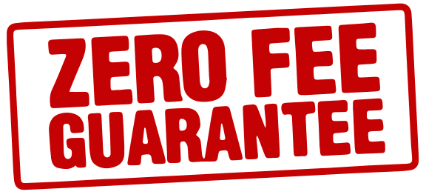No one purposely takes risks with their own safety and security. Most of us know to stay alert when walking around a city at night, lock our doors and not let strangers into our homes, and call the police when we feel threatened or see suspicious activity. However, we also naturally feel more at ease when we see that a building, parking garage, or park has security guards, surveillance cameras, or locks that keep non-guests out. We trust that those measures will keep us safe.
Unmonitored areas, broken locks, doors and gates that don’t close properly, poorly lit areas, and inadequate security are all invitations for criminals to commit robberies, physical assaults, sexual assaults, rape, or other violent crimes. When someone is attacked in a place where they had a reasonable expectation to feel safe, he or she may have a claim for negligent security against the property owner.
When a Claim of Negligent Security May Apply
If you suffer a slip and fall accident in a business, you may be able to file a premises liability claim against the property owner if his negligence led to a slippery floor, faulty guardrail, defective staircase, or any other hazard. But when poor lighting, broken locks, or an unqualified security guard leads to an attack on your person, the claim would fall under negligent security. This claim can apply to any property that is not owned by you, including:
- Hotels or motels
- Apartment buildings
- Parking garages or parking lots
- Amusement parks
- Shopping centers
- Bars or restaurants
- Zoos or parks
- Gyms or fitness centers
- Schools or colleges
- Office buildings
- Airports, train stations, or bus stations
- Tourist attractions
Owners of these kinds of properties must make a reasonable attempt to keep visitors and patrons safe from criminal acts. Adequate safety measures can be very expensive, and business owners often cut costs by hiring untrained security guards, using substandard or nonworking surveillance systems, and failing to inspect and maintain locks, windows, and alarms. If a victim can prove that a failure of this type led to his or her attack, he will have a strong case for a negligent security lawsuit.
What You Need to Prove a Claim of Negligent Security
1. The Crime Was Foreseeable. To establish this important fact, the victim must show that either an atmosphere of potential violence existed on or around the property or that the owner had constructive knowledge of the attacker’s violent nature.
In other words, there must have been reason to believe that a crime could occur at this location.
2. There Was Causation. The victim must show that the crime occurred because of the property owner’s negligence. This is not an invitation to present precautions that could have been taken to prevent the crime, but rather, it is a requirement to show that the measures that were taken malfunctioned or were inadequate.
For example, if a perfectly good alarm system is disabled by a criminal, the property owner will probably not be held liable, but if an entryway lock was broken and the landlord knew about it and didn’t repair it, then liability exists.






